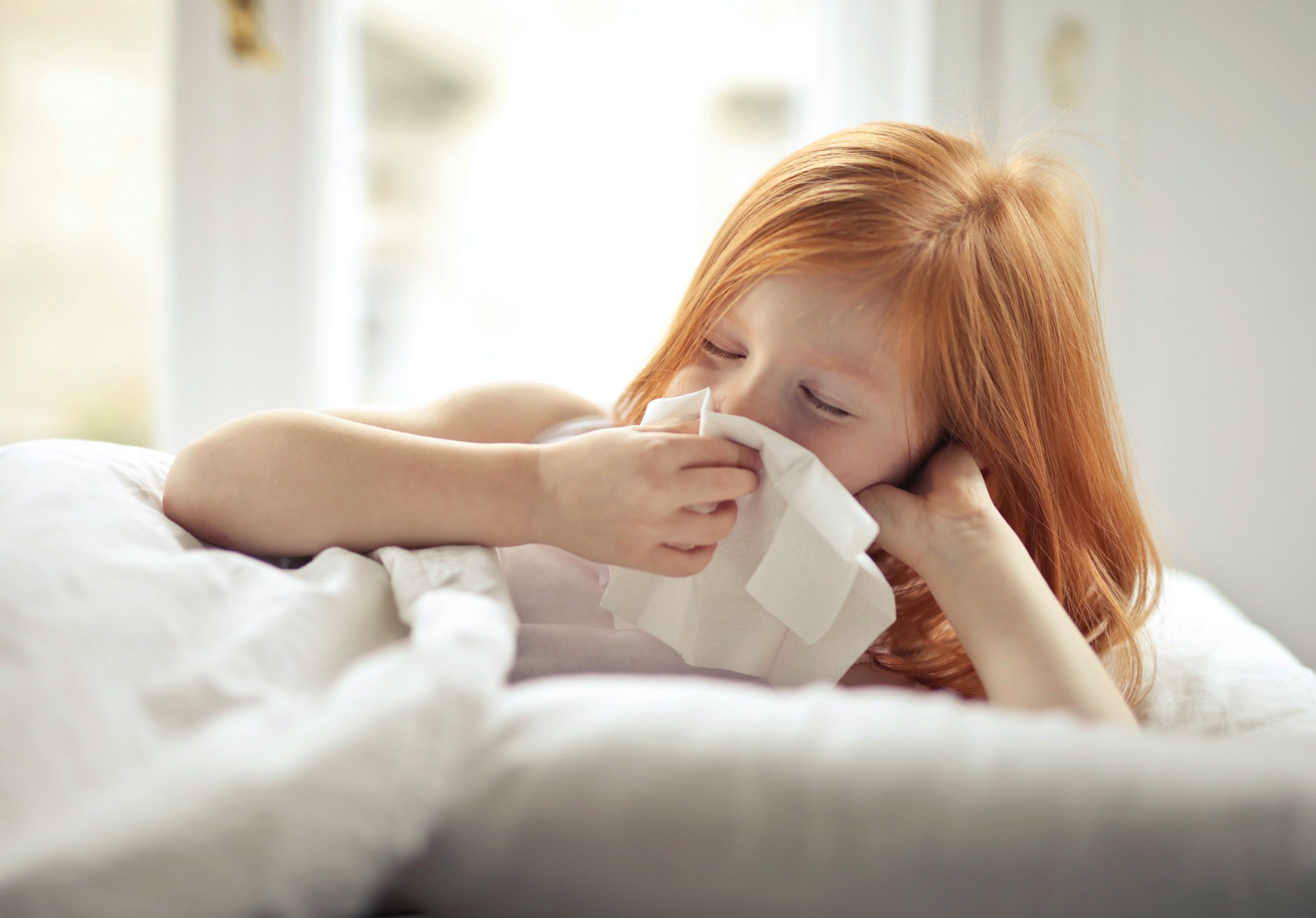Parenting a baby is not for the faint of heart, and that’s especially true when your little one is sick. They can’t tell you what’s wrong, there’s no way to know what they need, and although you want to make them feel better as quickly as possible, many of the usual treatments aren’t safe for babies.
Here’s a list of everything you need to handle your baby’s next illness like a parenting pro. They may not make your baby feel better faster, but they will keep your baby comfortable and set your mind at ease.
As always, be sure to check with your pediatrician or a healthcare professional to be sure you have everything you need for your little one’s illness.
Baby-Friendly Thermometer
At the very top of your sick-baby product list should be a reliable digital thermometer. If you call your child’s doctor, we guarantee one of the first questions the staff will ask during the screening process is “Does your child have a fever?” With this, you’ll be able to answer!
In babies, a high enough fever can warrant a call to the pediatrician or visit to the closest emergency center. What counts as a fever varies based on your child’s age and the kind of thermometer you’re using (oral versus rectal, for example).
A rectal temp is a gold standard for accuracy in younger babies, so you should consider being able to take a temperature in more than one way.
Infant Pain Relievers
For the most part, ibuprofen and acetaminophen formulated for infants are safe to administer when your baby is in discomfort. (Doctors don’t recommend using medicines to reduce fever unless your baby is having trouble eating or sleeping because they’re uncomfortable.)
Ibuprofen can be given to babies over six months of age, while acetaminophen can be given after two months of age. It’s always best, however, to consult with a doctor (especially if it is your first time administering).
Medication inserts will come with instructions about dosages based on age and weight, but always feel free to call your pediatrician if you’re unsure. Remember that fever of 100.4 degrees or higher in an infant under three months of age should be reported to the doctor ASAP, as it could be a sign of infection.
Since babies and young children can’t chew or swallow tablets, make sure you purchase a liquid formula.
Humidifier
Dry air will make coughs, sore throats, and stuffy noses worse, but running a cool-mist humidifier in your baby’s room during naps and at nighttime may alleviate some of those symptoms. A traditional humidifier that emits warm mist will have the same effect, but pediatricians generally prefer cool mist in children’s rooms to eliminate any risk of burns (in case the unit is accidentally knocked over or pulled down).
Mucus Busters
According to the American Academy of Pediatrics (AAP), you shouldn’t give cold medicine to kids under six (and many doctors recommend waiting even longer). You won’t be able to do a ton to relieve your baby’s sniffling, sneezing, and congestion, but saline is a safe way to thin and loosen some of your baby’s mucus. It also moistens their nasal passages, allowing them to breathe a little clearer.
You can also manually remove some of your baby’s mucus with one of several suction devices sold for this purpose.
Ways to Hydrate
Keeping your baby hydrated during an illness is important for their overall health—but it isn’t always as simple as handing them a sippy cup. You can encourage breastfeeding and bottle-feeding babies to stay hydrated by giving them more opportunities to nurse or drink from a bottle.
Feverish older babies may not be super interested in drinking water, so you’ll need to get creative and find other ways to get them the fluid they need.
Keep in mind that most fruit juices contain a lot of sugar so you don’t want to go overboard, but diluting juice with water will lower the amount of sugar and it might be worth it if your little one won’t drink anything else.
Comfort Care
Ever tried to wipe a baby’s nose? The combination of yucky symptoms and a baby’s general confusion over why they feel so miserable can lead to big-time crankiness.
Providing some comfort care, especially to their delicate skin, can soothe some of their angst and make it a little easier for you both to get through sick days.
A tube of Aquaphor is a lifesaver for a baby’s dry, chapped skin. And a baby-friendly lotion scented with lavender or honey can be a soothing sensory experience—you could even try giving your baby a relaxing massage before nap or bedtime.
Cleaning Supplies
There’s a good chance that being up close and personal with your baby when they’re sick will get you sick, too. Plus, sick babies are messy ones: there are diaper blowouts, medicine spit-ups, snot-filled sneezes, and sometimes vomiting. You can improve your chances of staying healthy by having a few basic cleaning supplies on hand.
There’s a time and place for green, natural cleaners in your house, but you may need an antibacterial cleaner or strong disinfectant for some surfaces when your baby is sick.

